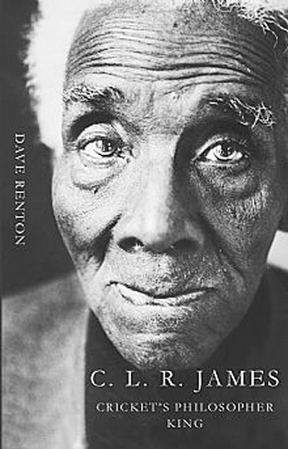By Brendan de Caires
C.L.R. James: Cricket’s Philosopher King, by Dave Renton (Haus Publishing, ISBN ISBN 78-1905791019, 192 pp)
Urbane Revolutionary: C.L.R. James and the Struggle for a New Society, by Frank Rosengarten (University Press of Mississippi, ISBN 978-1934110263, 282 pp)
In 1979, I watched rioters topple the boundary fence at the Bourda cricket ground in Georgetown and strafe the pavilion with soft-drink bottles. The Packer World Series had been plagued with rain delays, and now the crowd could take no more. Although I was only nine years old, I managed to throw a chair into the outfield before being spirited away to safety. Mounted policemen entered the grounds soon afterwards and used tear gas to bring the local sans-culottes under control.
Had I not seen Vivian Richards face Australia’s demon quicks at this very ground, the riot would have been the headiest moment of my young life. But I had seen him, and thirty years later I cannot forget his electric nonchalance: the leonine grace with which he strolled towards the batting strip, unhelmeted, bat swinging like a sword, while he sized up the fielders as though deciding whom to punish first. Richards was to cricket what Lenny Bruce had been to comedy, or Marlon Brando to acting: his dangerous intensity made it into something else, something closer to prizefighting, perhaps even “the continuation of politics by other means.” His defiance was palpable at a thousand yards. Before he reached the bottom of the pavilion steps, you could feel the atmosphere change. By the time he had taken his guard, we were leaning forward in anticipation, anxious for Lillee and Thomson, Australia’s schoolyard bullies, to get their due. He didn’t disappoint.

